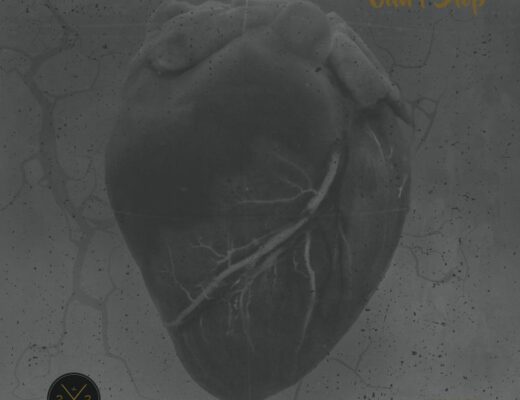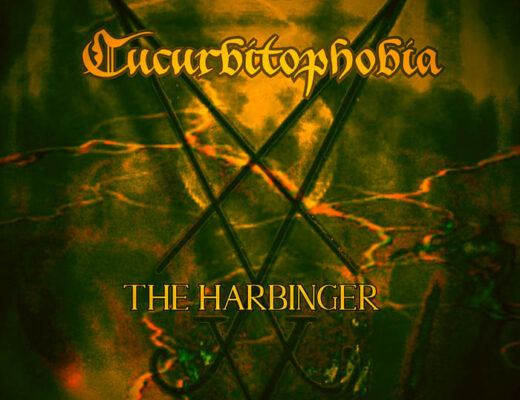In this interview, classical composer Peter Xifaras discusses the intricate themes behind his latest album, “Dystopian World.” Inspired by George Orwell’s 1984, Xifaras confronts modern issues such as surveillance, freedom of speech, and information manipulation through his music. His work blends traditional orchestration with contemporary recording techniques, creating a soundscape that speaks to today’s societal challenges. The album makes a powerful artistic statement while encouraging listeners to reflect on the pressing issues of our time, highlighting the relevance of classical music in contemporary discourse.
Peter Xifaras, it’s a pleasure to sit down with you to discuss your upcoming classical album, Dystopian World. The title gives plenty of clues to the underpinning themes of the album, but we’d love to know the motivation that drove you to compose such a viscerally heartrending release.
It isn’t all too common for classical composers to tackle themes of social change in their work. In your opinion, why is classical music a good means for opening an existential dialogue and spreading awareness that we’re effectively sleepwalking into obsoletion?
The reason I chose this medium for the project is two-fold:
The album deals with dystopian themes infiltrating society that are of significant relevance today, especially with young people given recent events around the globe. Hence, by messaging these thought-provoking concepts via classical music, it presents a unique opportunity to expose this genre to a younger audience who may have never thought of giving this style of music any consideration.
Secondly, I think when most people think of classical music, Bach, Beethoven and Mozart immediately come to mind. However, there are composers in the ‘classical’ field that incorporate modern recording techniques such as electronics & loops with a traditional orchestra that have emerged in recent years. Dystopian World does incorporate some of these modern techniques, in addition, the compositions are presented in bite-size chunks in 2 to 4-minute tracks to keep the audience engaged – sort of how rock & pop music is presented on a playlist or album.
How does the album fit in with your day-to-day worldview?
My day-to-day world view is changing day-to-day! And I’m probably not the only one. In my opinion, George Orwell’s fictional work, 1984, has become a reality in the dystopian state of our current world thru surveillance technology, freedom of speech, information manipulation, censorship, redefining language, privacy erosion, propaganda, individuality, groupthink, and the value of truth.
A Google search revealed many of the talking points below from which writings from these sources are presented as follows:
SURVEILLANCE: The proliferation of surveillance technology has surpassed anything Orwell could have imagined. As people become more reliant on technology, the potential for abuse grows with the ability to track individuals’ movements, behaviors, and even conversations, both online and offline (think Amazon Echo, Google Home, Siri, Smart TV’s that listen, Apple air tags). This invasive surveillance infrastructure evokes the omnipresent “Big Brother”. Although AI technology holds great promise for societal progress, it also comes with significant risks that echo the Orwellian themes
FREEDOM OF SPEECH: Another critical aspect of Orwell’s “1984” is the suppression of freedom of speech. There is a pattern of increasing censorship on social media platforms, with dissenting voices silenced and marginalized. This chilling trend leads to narrowing public discourse, creating an environment where independent thought becomes increasingly rare. In some cases, governments and corporations wield their power to silence critics and whistleblowers, while in others, individuals self-censor out of fear of social backlash. This stifling atmosphere resonates with the oppressive regime portrayed in “1984”.
INFORMATION MANIPULATION: In “1984,” the government manipulated information to control the populace. Today, we face a similar challenge with the spread of misinformation and disinformation online. Social media algorithms prioritize sensational content, contributing to a distorted perception of reality and undermining trust in institutions. Deliberate campaigns to sow confusion and doubt further exacerbate this issue as malicious actors exploit the digital landscape to advance their agendas. This manipulation of information echoes the actions of Orwell’s fictional government, which rewrites history and fabricates facts to maintain its grip on power. AI technology is also being employed to monitor and control online information flow. Algorithms can automatically detect and remove inappropriate or offensive content, potentially suppressing free speech. While this technology is often used with good intentions, such as combating hate speech and misinformation, powerful entities can also abuse it to silence dissenting voices and manipulate public opinion.
PRIVACY EROSION: As individuals lose control over their digital footprint, the potential for manipulation and coercion increases. Invasive data collection practices and weak privacy protections have left individuals vulnerable to identity theft, targeted advertising, and government surveillance. This loss of privacy mirrors the intrusive monitoring of citizens in “1984,” where every aspect of life was subject to scrutiny and control.
PROPAGANDA: Today we see the pervasive influence of propaganda through advertising, political campaigns, and media manipulation. The advent of deep fake technology has introduced unprecedented sophistication to propaganda efforts, allowing for the creation of convincing but entirely fabricated audio and visual content. This manipulation of perception and reality parallels the tactics employed by Orwell’s fictional government, which uses propaganda to shape public opinion and suppress all dissent.
CONFORMIST SOCIETY: The pressures of social media and the expectation to conform to certain ideals can lead to the loss of individuality. People may feel compelled to present curated versions of themselves, stifling their authentic self-expression. As individuals strive to fit societal expectations, they risk losing their unique identities and perspectives. This suppression of individuality aligns with Orwell’s portrayal of a society where personal expression is discouraged and collective conformity is enforced.
GROUPTHINK: Today, the prevalence of echo chambers on social media platforms can also promote groupthink, leading to a polarized society where dissent is vilified and critical thinking is discouraged. This fragmentation of public discourse contributes to ideological bubbles, where individuals surround themselves with like-minded people and reinforce their existing beliefs. As a result, society becomes increasingly divided. AI can also influence individuality and groupthink in subtle ways. Personalized social media and search engine algorithms can create echo chambers, reinforcing individuals’ beliefs and biases. This can increase polarization and conformity, as people are less exposed to diverse perspectives and ideas. In this context, AI may inadvertently contribute to the suppression of individuality and the promotion of groupthink, similar to the dynamics in Orwell’s dystopian society.
VALUE OF TRUTH: Orwell’s “1984” portrays a world where objective truth is disregarded in favor of government-sanctioned narratives. Today, we face the challenge of distinguishing truth from falsehood amidst misinformation. As the value of truth diminishes, societies risk falling prey to manipulation and deception. The emergence of the term “post-truth” indicates this troubling trend, as it suggests that emotional appeals and personal beliefs have overtaken objective facts in shaping public opinion. In this era of alternative facts and fake news, the pursuit of truth becomes a daunting task, reminiscent of the constant struggle faced by the protagonist in “1984” to discern reality from fabrications.
Where and how was Dystopian World recorded?
The main Orchestra was recorded in Prague by the Czech National Symphony Orchestra, Vladimir Martinka, conductor. Living in the USA, I chose to attend the recording via a remote Zoom session as opposed to flying to Prague. This is all coordinated thru Musiversal who sets up the recording session, orchestra times, etc. For this session, I worked with Rita Tulha, Enrico Fallea, Alex Palmer, Jan Kotzmann & Vitek Kral – a great bunch of folks. The solo violin parts were recorded by Xander Nichting in Belgium at Violin-Tracks. Xander is a multi-talented artist who also performed on my previous jazz-fusion release on electric violin. After all the tracks were recorded, I edited, arranged & mixed them via my studio at Music With No Expiration®. The final phase of the process was to work with Michael Cuneo over at NeverNever Music Production in Los Angeles where the tracks were Mastered.
What was the most gratifying part of bringing this album to fruition?
I’m big on marrying music with video & film. I think when both are combined, the messaging then explodes. Each track on ‘Dystopian World’ has its own music video – so for me, when this comes together, the end result is the pinnacle of gratification as all the pieces finally fit together that were once only a concept in my mind.
How would you like the album to be received?
Hopefully, the music is received in a positive light, and the messaging received as a warning. As George Orwell stated, “Don’t let it happen, it is up to you”.
Focusing on your composition style, what sets you apart from your contemporaries?
My last 3 albums have focused on ‘music for social change’. ‘Children Of Conflict’, an album also recorded by the CNSO, focused on children who daily are faced with simply trying to survive in the conflict zones of the world (i.e., Middle East, Ukraine, Afghanistan), children who have never had a choice and live under the consequences of decisions made by rogue governments and dictators. ‘Fusion’, is a jazz fusion album that features a song titled While My Guitar Weeps For Mehdi Rajabian. Mehdi was imprisoned in Iran for making music deemed unacceptable by the government where he was beaten & tortured and came close to death. The song was dedicated to him celebrating his bravery. Mehdi went on to become the first musician to win the United Nation’s international art contest for minority artists. Now with my current release, ‘Dystopian World’, I once again have an album that includes a ‘music for social change’ element to it. Compositionally, the music of these albums are dramatic and all contain powerful social messaging – perhaps that is what sets the style apart from others.
What’s next for Peter Xifaras?
I’m going to lighten it up a bit and release variations on a melody as timeless as time itself originally written in the 16th century. The work has already been recorded and I’ll begin work on editing, mixing & arranging probably in the Autumn. I’m also going to release some singles thru my symphoneX Orchestra® project that is cross-over in nature with some very cool guest artists participating.
Anyone interested in checking out ‘Dystopian World’ can go to this link: https://orcd.co/nq5bpoq
Interview by Amelia Vandergast




No Comments